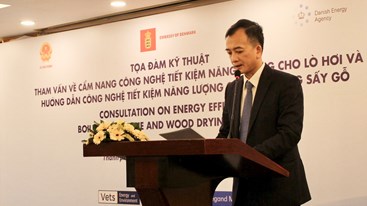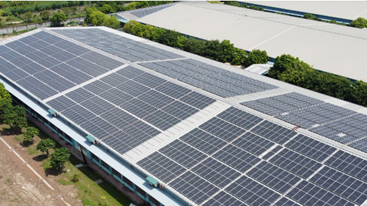Friday, 17/05/2024 | 09:38 GMT+7
State and local governments have recently sought measures to increase efficiency for municipal buildings, which can reap benefits both financial and environmental. While some jurisdictions have opted for efficiency from the get-go by constructing new buildings in accordance with the Leadership in Energy and Environmental Design, or LEED, standard, others have looked to retrofit existing buildings with cost-saving and environmentally sound measures.
One of the latter cities is the District of Columbia, which recently announced it will be implementing BuildingIQ’s cloud-based heating, ventilation and air conditioning (HVAC) management solution in eight buildings.
The partnership, facilitated by a Department of Energy grant program, will deliver on the District’s commitment to lower energy consumption, save taxpayer money and reduce greenhouse gas emissions. BuildingIQ will work with the DC’s Department of General Services, New City Energy, and the Lawrence Berkeley National Lab to deliver annual savings of $600,000 and generate more than $1,000,000 in free cash flow over the term of the partnership. As a DOE program participant, DGS will also receive numerous cost share benefits, the city said.

BuildingIQ’s Predictive Energy Optimization platform is capable of automatically developing a model for individual buildings that predicts energy consumption, cost and comfort based on building characteristics, weather forecasts, energy pricing as well as signals from the utility. Additionally, BuildingIQ’s software is capable of making real-time adjustments to each building, directly adjusting heating, ventilation, and air condition system parameters that can reduce heating and cooling costs by as much as 25 percent. This automated, cloud-based solution requires no manual interaction, thus freeing up labor hours from building staff and engineers.
The cloud-based technology will be used at hospitals, education facilities and commercial office spaces managed by DGS across its portfolio of District-owned facilities.
“We’re excited to make BuildingIQ’s platform part of our climate-driven energy strategy,” said DGS' Mark Chambers. “The technology will not only maximize operating efficiency and reduce energy costs, but will also provide the city with a valuable revenue stream, through demand response, that will go a long way toward ensuring the comfort, safety and security of District residents and employees.”
Truong Duy








.jpg?w=367&h=206&mode=crop) Energy efficiency and conservation usage is an important aspect of the national energy development strategy
05/03/2024
Energy efficiency and conservation usage is an important aspect of the national energy development strategy
05/03/2024
 Challenges and Opportunities to promote energy efficiency market in Vietnam
Challenges and Opportunities to promote energy efficiency market in Vietnam
 The Ministry of Industry and Trade requests government agencies to coordinate in organizing Earth Hour 2024
The Ministry of Industry and Trade requests government agencies to coordinate in organizing Earth Hour 2024
 Consultation on Energy Efficiency Boiler Catalogue and Wood Drying Guideline
Consultation on Energy Efficiency Boiler Catalogue and Wood Drying Guideline
.png?w=367&h=206&mode=crop) Request for expression of interest - C2.1.13: Capacity Building on energy efficiency policies development
Request for expression of interest - C2.1.13: Capacity Building on energy efficiency policies development
 Son Ha Co., Ltd, applies energy efficiency and conservation measures
Son Ha Co., Ltd, applies energy efficiency and conservation measures
 Phuc Kien Co., Ltd., is effectively implementing energy-saving measures
Phuc Kien Co., Ltd., is effectively implementing energy-saving measures
 Request for expression of interest - C2.1.12: Independent monitoring of safeguards implementation
Request for expression of interest - C2.1.12: Independent monitoring of safeguards implementation